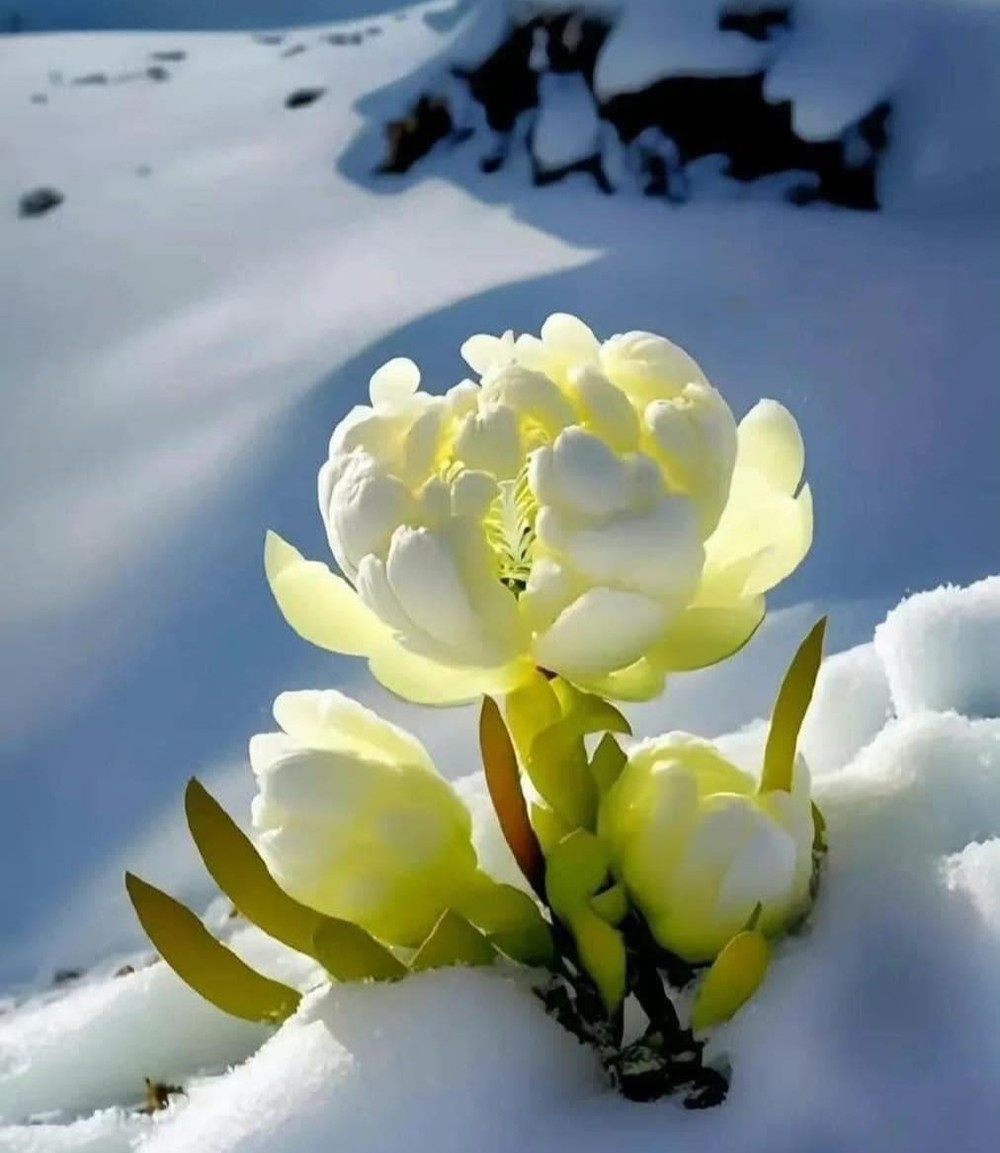
In Chinese martial arts literature and films, Snow Lotus, also known as Snow Plum Blossom is a legendary herb with miraculous effects on rejuvenation and enhancing one’s martial arts abilities. While it may seem like a purely fictional creation of human imagination, this flower actually exists in nature.


Snow Lotus can be found in the snowy mountains all year round. The flower’s petals are white and yellow, and the stigma is red-purple, resembling a lotus. Despite being a member of the Asteraceae family, it is as large as a lotus flower.


Snow Lotus can grow and blossom in extreme cold weather, as it is capable of thriving in snowy areas with temperatures as low as -21°C. This flower can only grow in rocky crevices or slopes, taking five to seven years to mature and only 5% of the seeds can germinate. The seeds of Snow Lotus germinate at 0°C and grow in conditions of 3-5°C.

The Chinese believe that the beautiful shape of Snow Lotus is a result of the crystallization of wind, clouds, and snow. Snow Lotus has been a legendary herb in Chinese culture for centuries. In 2018, Snow Lotus was discovered in the Tian Shan Mountains, China. In 2020, this miraculous flower was also found in the Dzungarian Gobi, Baitag Bogd Mountains, Mongolia, 250km away from the first discovery point.

Snow Lotus is highly regarded in traditional Chinese medicine for its numerous benefits. It is believed to have detoxifying effects, improve overall health, and alleviate ailments such as rheumatism. The flower has a high thermal effect, and it is said that after consuming it, one can withstand the cold and even walk in the snow without feeling cold.


Snow Lotus is a rare and precious flower, and its medicinal properties are highly sought after. While its legendary properties in martial arts may be exaggerated, there is no doubt that this flower has a special place in traditional Chinese medicine and culture.
